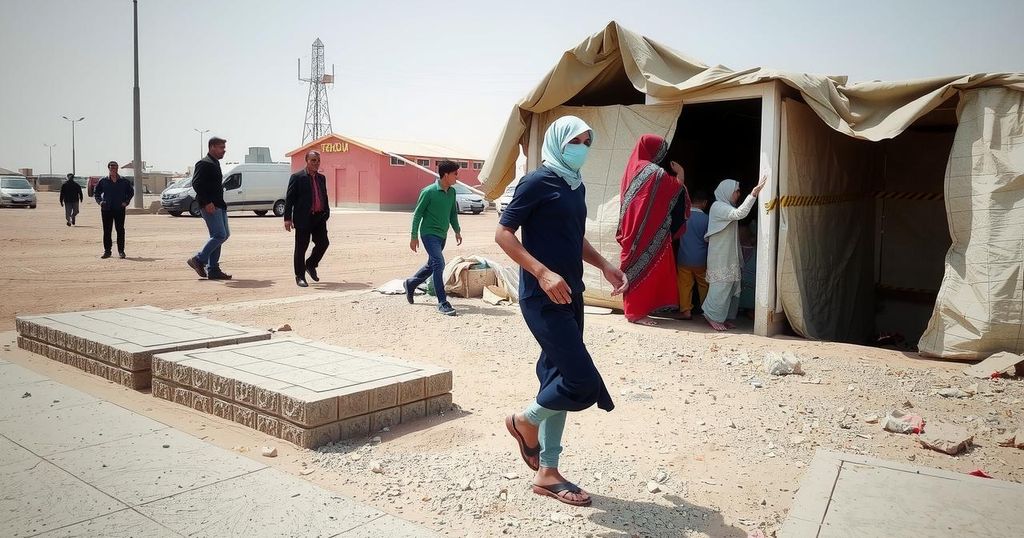Egypt has shifted from welcoming refugees to viewing them as scapegoats in light of the country’s economic crisis. Public figures have begun to blame migrants for resource strains, reflecting a dramatic change in sentiment towards those seeking refuge in the nation. Azza Mostafa’s transition from supporter to critic of refugees underscores this evolving narrative, indicating broader societal tensions as Egypt seeks external aid amid rising discontent.
Egypt has long been perceived as a refuge for millions escaping conflict; however, the country now faces a significant economic crisis, leading to a shift in attitudes toward refugees. Once welcomed and praised for enriching Egyptian society, individuals from Syria, Sudan, and Gaza are now being regarded with suspicion and resentment. Government sentiments and public discourse reflect these changing dynamics as officials call for support from Western nations while attributing local resource strains to the influx of migrants.
Azza Mostafa, a pro-government television presenter, exemplifies this shift. Previously supportive of Syrian refugees, she made inflammatory remarks against them, declaring that the presence of refugees has become intolerable, fostering rising rents and social issues. She lamented, “This has become unbearable,” indicating a notable pivot from support to criticism.
Egypt has witnessed waves of refugees for over a decade, yet the combination of ongoing regional unrest and economic challenges has created friction. Public figures increasingly echo sentiments that blame immigrants for overwhelming local resources. This context highlights the delicate balance Egypt must navigate between its humanitarian responsibilities and pressing economic realities.
Egypt has historically been a destination for refugees fleeing conflict and instability in their home countries, particularly since the onset of the Syrian civil war in 2011. This influx has included not only Syrians but also citizens from Sudan, Yemen, Eritrea, and most recently, Palestinians from Gaza, establishing Egypt’s role as a pivotal refuge in the Arab world. However, the current economic turmoil faced by the nation, compounded by external geopolitical factors, has led to shifting perceptions of these refugees. Concerns about resource allocation and social integration have become more pronounced as the government struggles to cope with increasing pressures on the economy.
In summary, Egypt’s changing attitude towards refugees highlights the complicated interplay between humanitarian considerations and economic pressures. As the country grapples with the ramifications of regional conflicts and its own economic challenges, the narrative around refugees has transitioned from one of welcome to that of scapegoating. The attitudes expressed by public figures reflect growing frustration among Egyptians regarding resource scarcity, indicating that the future relationship between Egypt and its refugee population remains uncertain as the situation evolves.
Original Source: www.nytimes.com






